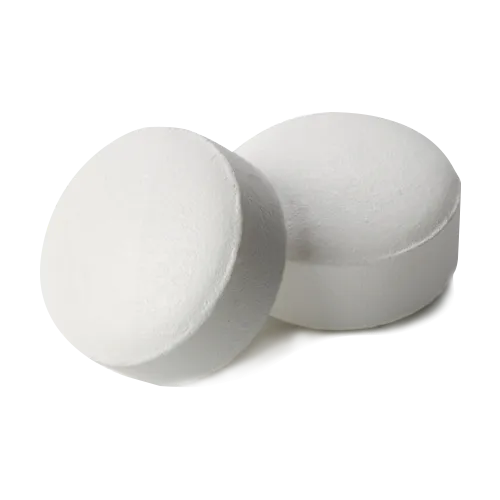Overview
Reglan, generically known as metoclopramide, is a medication used to treat gastrointestinal disorders by enhancing stomach and intestinal motility. It is prescribed for conditions such as gastroparesis, gastroesophageal reflux disease (GERD), and nausea/vomiting related to chemotherapy or surgery. Available in tablets, syrup, and injectable forms, Reglan offers versatile administration options.
History of Development and Approval
Developed in the 1960s, metoclopramide gained FDA approval in 1979 for diabetic gastroparesis, with later approvals for GERD and chemotherapy-induced nausea. Its dual prokinetic and antiemetic properties, supported by clinical research, have made it a cornerstone for gastrointestinal symptom management.
Key Benefits
- Improved Gastric Motility: Enhances stomach and intestinal contractions for better food passage.
- Symptom Relief: Reduces nausea, vomiting, and abdominal discomfort.
- Versatile Indications: Effective for gastroparesis, GERD, and nausea management.
- Multiple Forms: Tablets, syrup, and injectables cater to diverse patient needs.
Unique Properties
Reglan’s dual action as a prokinetic and antiemetic, achieved by blocking dopamine receptors in the brain and gut, distinguishes it from other treatments. This mechanism enhances gastric emptying and reduces nausea, offering rapid symptom relief.
Comparison with Similar Medications
Compared to other prokinetics and antiemetics, Reglan offers:
- Dual Action: Combines motility enhancement and nausea relief, unlike single-action agents.
- Flexible Forms: More administration options than some alternatives like domperidone.
- Rapid Effect: Faster symptom relief compared to certain antiemetics.
Safety and Tolerability
Reglan is generally well-tolerated, with common side effects including drowsiness, fatigue, and restlessness. Rare serious effects, such as tardive dyskinesia or severe allergic reactions, require monitoring. Short-term use and regular healthcare provider oversight ensure safety.
Indications for Use
Reglan is indicated for:
- Gastroparesis: Improves delayed gastric emptying, especially in diabetic patients.
- GERD: Reduces acid reflux symptoms.
- Nausea/Vomiting: Manages symptoms from chemotherapy, surgery, or migraines.
Dosage and Administration
Adults: Gastroparesis/GERD: 10 mg 3–4 times daily, 30 minutes before meals and bedtime, for 4–12 weeks. Nausea: 10–20 mg as needed.
Children: 0.1–0.2 mg/kg/dose, provider-guided.
Elderly: Lower doses (5 mg), monitor closely.
Timing: Before meals for optimal effect.
Notes: Limit to 12 weeks to reduce tardive dyskinesia risk.
Mechanism of Action
Metoclopramide blocks dopamine D2 receptors and enhances acetylcholine release, increasing gastrointestinal motility and reducing nausea by acting on the brain’s chemoreceptor trigger zone and gut.
Composition
Active Ingredient: Metoclopramide, drives prokinetic and antiemetic effects.
Inactive Ingredients: Tablets: lactose, microcrystalline cellulose; syrup: sorbitol; injectables: sodium chloride for stability.
Side Effects
Common: Drowsiness, fatigue, restlessness, diarrhea.
Rare: Tremors, anxiety.
Serious: Tardive dyskinesia, neuroleptic malignant syndrome, allergic reactions require urgent care.
Prevention of Side Effects
Use lowest effective dose, limit duration to 12 weeks, monitor for movement disorders or neurological symptoms. Avoid alcohol to reduce drowsiness.
Contraindications
Avoid in hypersensitivity to metoclopramide, gastrointestinal obstruction, seizure disorders, or pheochromocytoma.
Warnings and Precautions
Monitor for tardive dyskinesia, especially with prolonged use, and neurological symptoms. Caution in Parkinson’s disease, depression, or hypertension.
Drug Interactions
Increases effects of sedatives; antipsychotics heighten tardive dyskinesia risk; digoxin absorption may decrease. Disclose all medications.
Overdose
Symptoms: confusion, tremors, seizures. Seek emergency care immediately.
Pharmacokinetics
Absorption: Rapid, peak 1–2 hours.
Distribution: Widely distributed, crosses blood-brain barrier.
Metabolism: Liver to inactive metabolites.
Elimination: Urine; half-life 5–6 hours.
Dosage Forms
Tablets (5 mg, 10 mg), oral syrup (5 mg/5 mL), injectable solution (5 mg/mL) for flexible administration.
Pregnancy and Breastfeeding
Use if benefits outweigh risks (Category B); excreted in milk, consult provider for breastfeeding.
Storage
Store at 20°C–25°C (68°F–77°F), dry, light-protected, away from children. Dispose expired properly.
Clinical Evidence
Trials confirm Reglan’s efficacy in improving gastric emptying, relieving GERD symptoms, and reducing nausea/vomiting, with rapid onset and high tolerability.
Conclusion
Reglan is a versatile prokinetic and antiemetic for gastrointestinal disorders, offering rapid symptom relief and flexible dosing. Adhere to prescribed regimens, monitor side effects, and consult providers for optimal outcomes.




